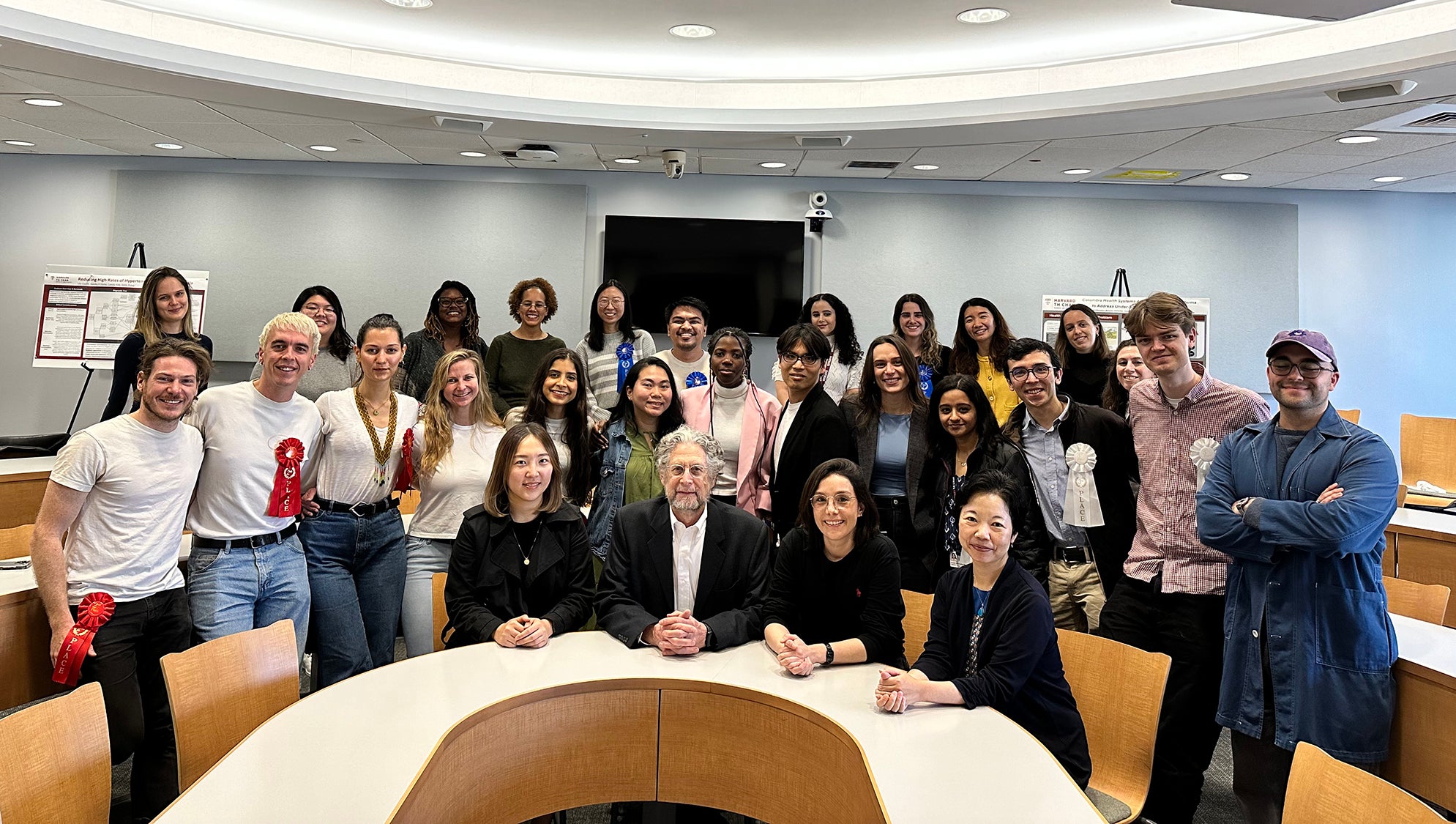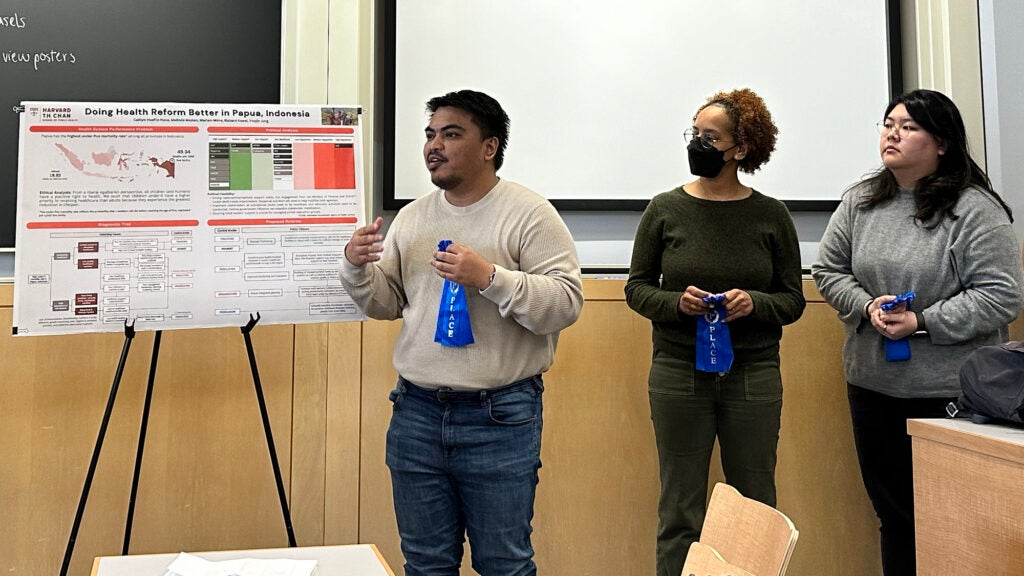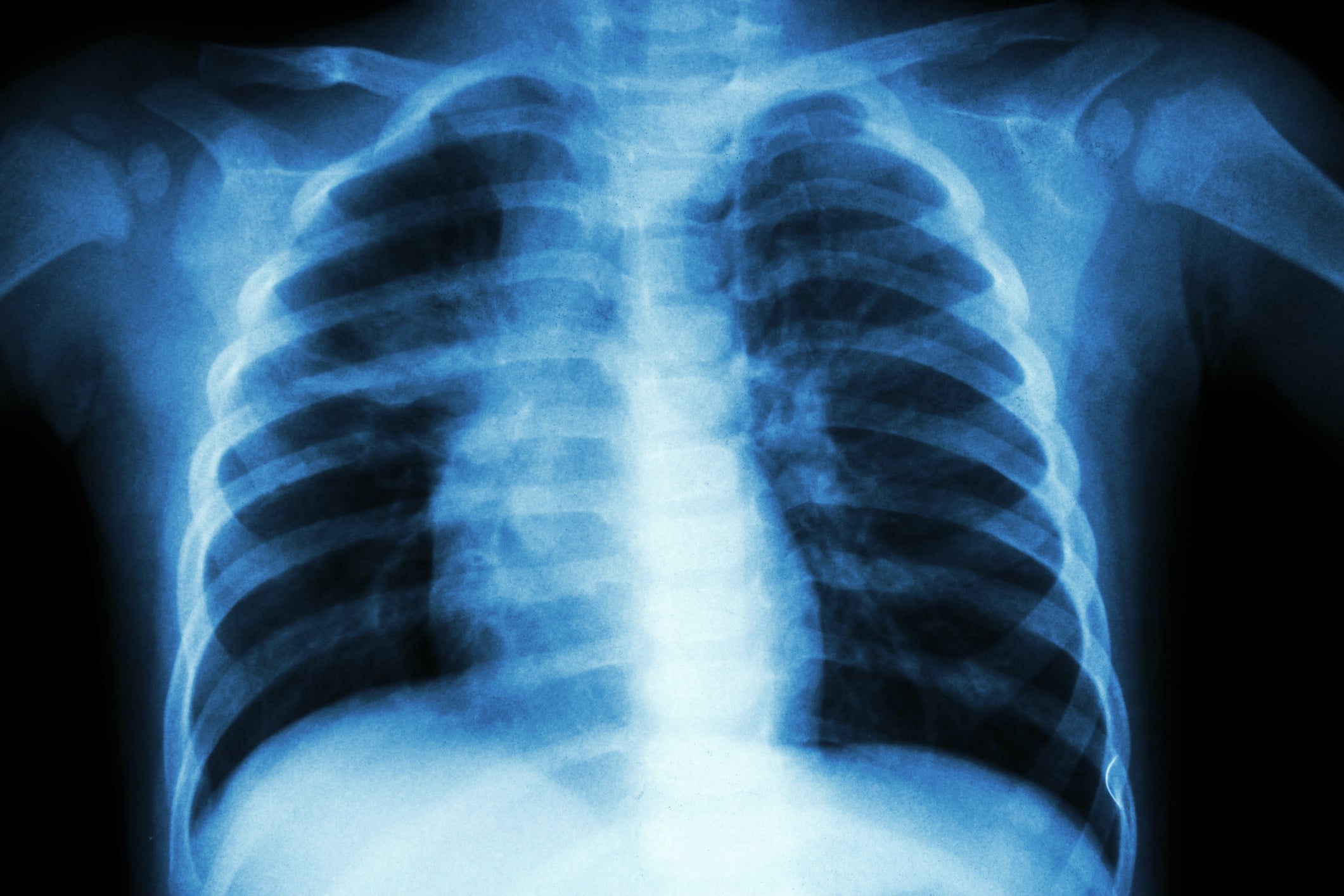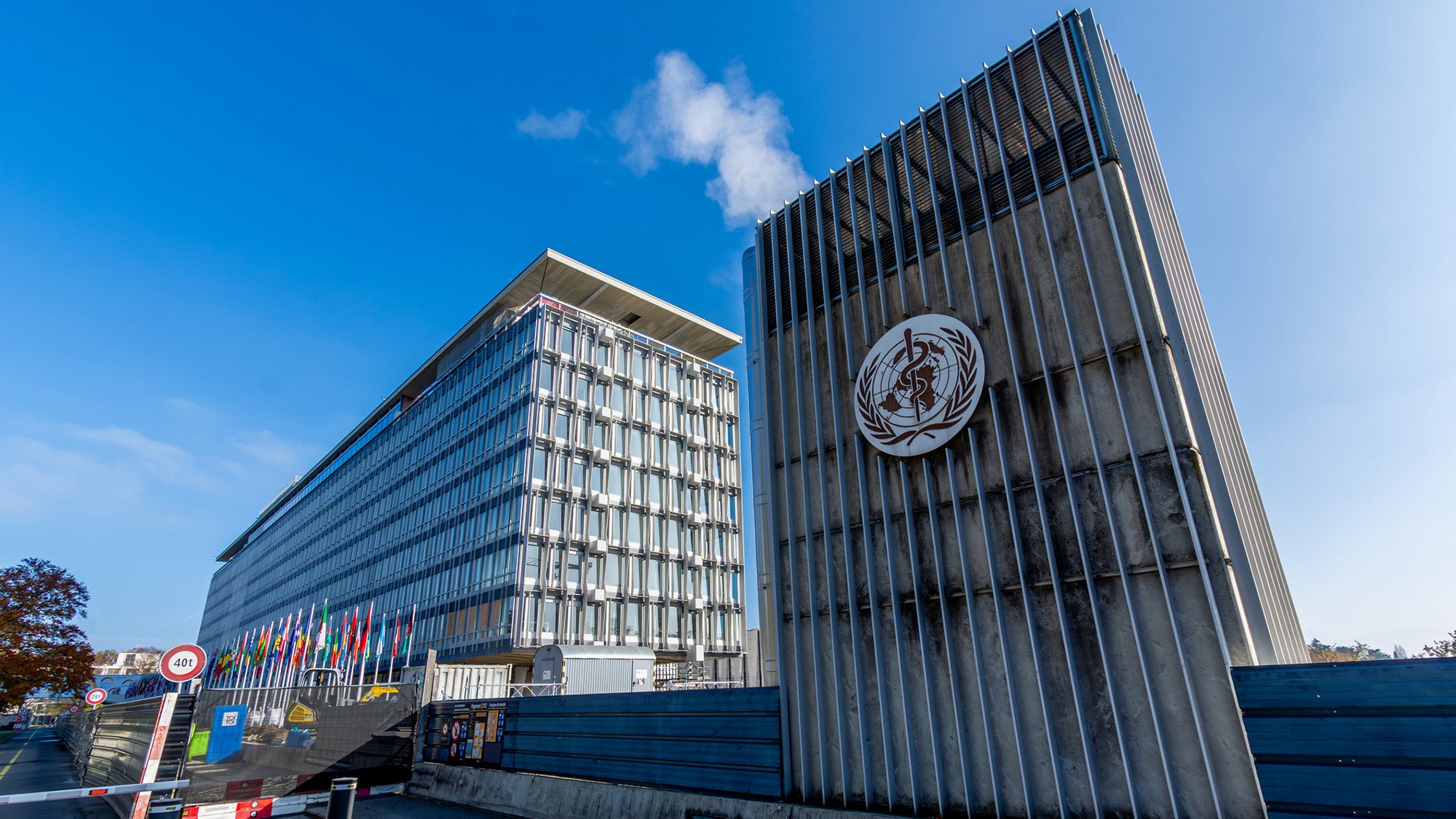Student project garners meeting with Indonesia’s health ministry

When Indonesian physician Richard Kowel, MPH ’25, got a job with UNICEF in his country’s Papua province four years ago, he was supposed to focus on malaria elimination. But he found himself working to address multiple additional needs not being met by the health system. This fall, he came to Harvard T.H. Chan School of Public Health to gain skills that would help him do more to improve public health in his country. With six months still to go in his program, he’s already off to a strong start: A class project he played a key role in garnered him and his teammates a meeting with Indonesia’s Ministry of Health.
The project was for the Fall 1 course “Doing Health Reform Better,” taught by Michael Reich, Taro Takemi Professor of International Health Policy, emeritus. Students formed teams and chose a country to analyze a problem in its health system performance and propose reforms. This year’s teams included Colombia, Democratic Republic of Congo, Guatemala, Florida (USA), and a Papua, Indonesia team formed by Kowel. The course uses as a text the seminal book, Getting Health Reform Right: A Guide to Improving Performance and Equity, by members of the School’s faculty: the late Marc J. Roberts, William Hsiao, Peter Berman, and Reich.
Kowel said that the team opted to focus on mortality rates in children under five, which can be an indicator of weaknesses in a country’s primary care system. Papua’s under-five mortality rate of 49.04 per 1,000 live births is more than twice Indonesia’s national average, reflecting inequities in access to vaccinations, neonatal care, and treatments for common childhood diseases, according to the team’s findings. Their paper’s recommendations included making a number of financial and regulatory reforms, in addition to implementing culturally sensitive health promotion strategies in collaboration with local leaders.
Kowel provided the project’s political analysis, and said he appreciated what everyone else was able to bring to the team, including his friend Melinda Mastan, MPH’ 25, also from Indonesia, who led the problem analysis. “The dynamic between our diverse team members made the project a success,” he said. “We were able to trust each other’s expertise and be open to learning from each other.”

Team Indonesia took first place in the class’s vote following a final poster session. Kowel, who had some prior experience working with Indonesia’s Ministry of Health, thought his team’s research might be useful to them. With the encouragement of Reich, he sent the project to Maria Endang Sumiwi, general director of public health. She got back to him a few hours later and set up a Zoom meeting within a week.
Kowel said he was surprised to get a meeting invitation—even more so when it turned out to be not just with Sumiwi, but with a team of directors and a deputy from the Ministry of Health, including individuals responsible for Papua. “They found our paper very useful,” he said, and noted that the meeting generated a good discussion about ways to improve primary care services and strengthen the health system, especially for Indigenous communities.
Reich said that as far as he knows, this is the first time a team from the course has shared their project with the country they focused on. “The entire course is oriented to producing material that can be useful to health system decision makers—connecting theory and classwork to practice,” he said. “The Indonesia team took this idea and implemented it. It’s wonderful.”
Sun Kim, PhD ’25, a teaching fellow for the course, said, “I could clearly sense Richard and the team’s strong commitment to serving marginalized populations in Papua. Their health reform proposal stood out for its unwavering focus on health equity and its cultural sensitivity, which was rooted in a profound understanding of Papua’s history and the communities they seek to serve.”
Since completing the course, Kowel has started a practicum with UNICEF documenting health system reform in Lebanon. He is particularly interested in learning about how the country provides primary care during armed conflict and how to strengthen the health system in a fragile state, he said. He hopes that this experience will provide insights he can apply to future work in Papua, where a separatist movement has been in conflict with the Indonesian government since 1963.
Kowel’s recently completed final project has left him feeling excited about the potential for taking a multifaceted approach to tackling public health problems. Public health work can become very focused on technical aspects, he said, but a wider lens is needed when dealing with the complex problems associated with a conflict setting. “We need to understand the social and political situation, and the community’s values, and incorporate them into our practices,” he said.


